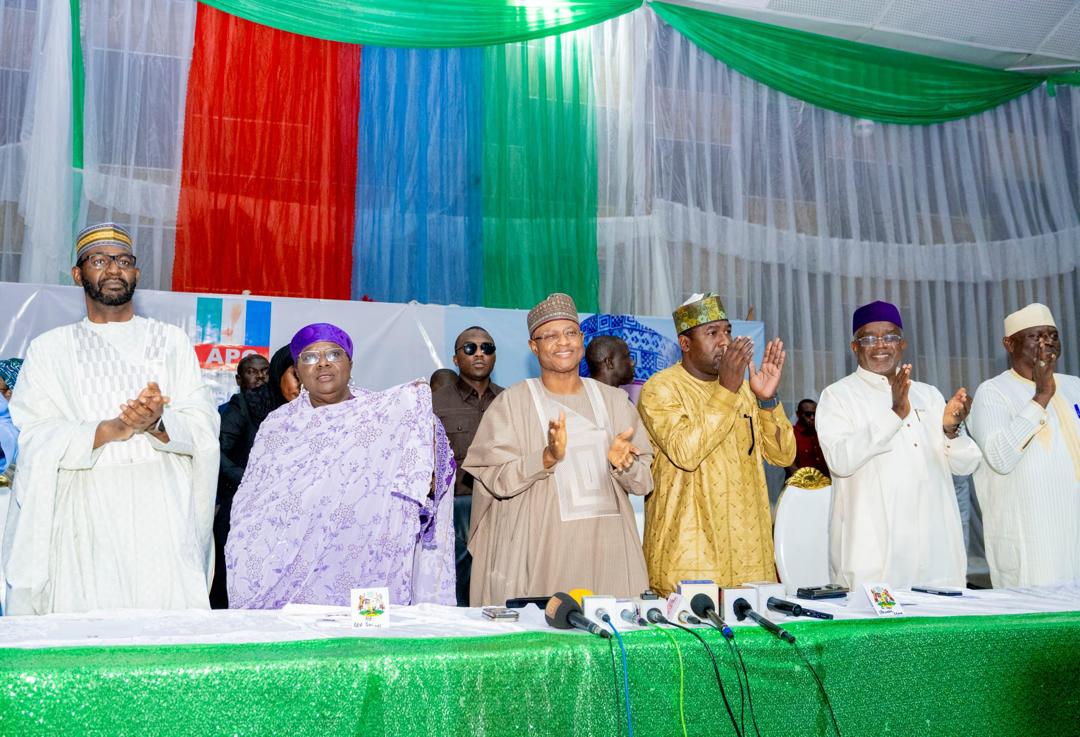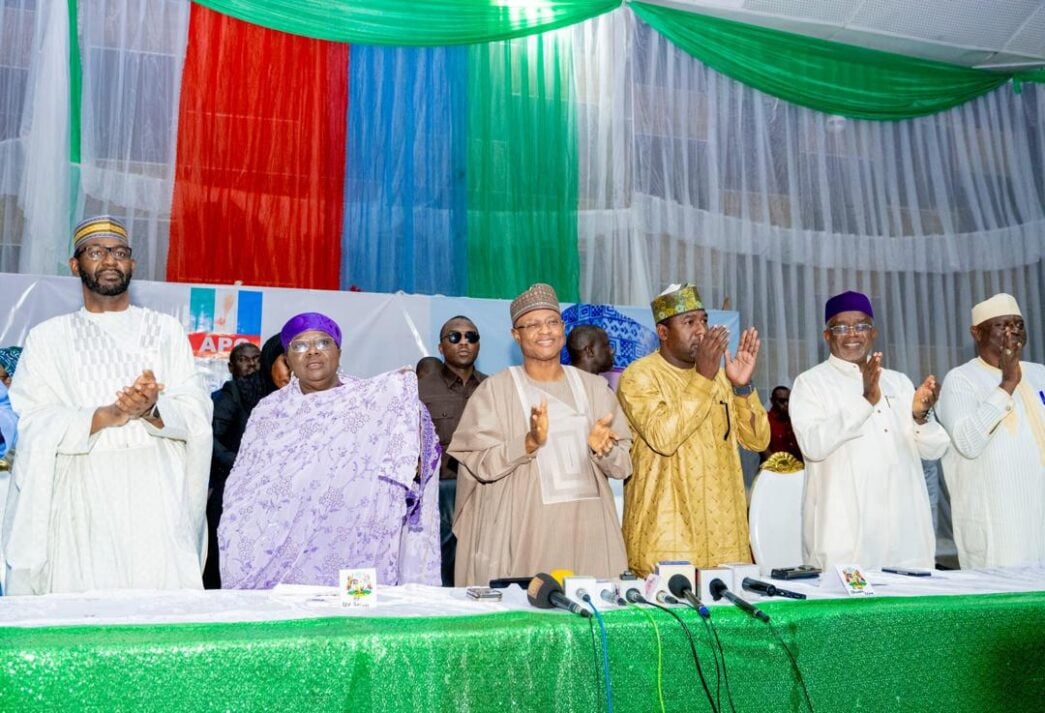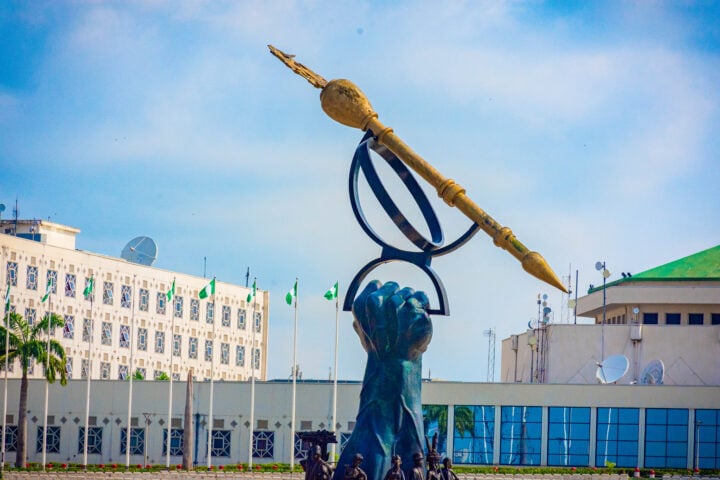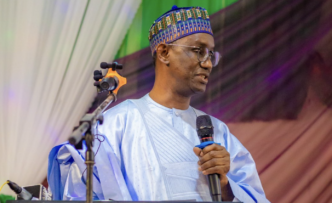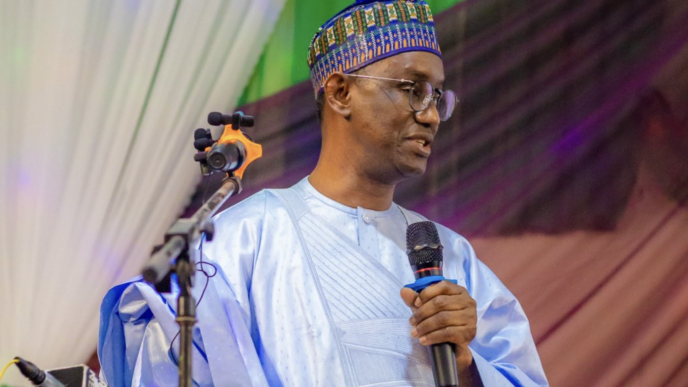Governor Uba Sani meeting with party leaders and stakeholders following the successful by-elections
BY IBRAHIM GIMBA
In a stirring affirmation of purposeful governance and a powerful repudiation of divisive politics, the by-elections held across Kaduna State on Saturday, August 16, 2025, delivered a resounding victory to the ruling All Progressives Congress (APC). This triumph, more than an electoral win, represents a referendum on a new style of leadership: transparent, transformative, and inclusive; and embodied in the person and policies of Senator Uba Sani, the Governor of Kaduna State.
The magnitude of the APC’s sweep was emphatic. In the fiercely contested Chikun–Kajuru Federal Constituency, a stronghold long held by opposition forces, Hon. Felix Bagudu emerged victorious with an astonishing margin of 23,089 votes. Similarly, the APC retained dominance in the Kaduna State House of Assembly, as Hon. Isa Haruna Ihamo and Hon. Dahiru Umar-Sani secured commanding wins in Zaria Kewaye and Basawa constituencies, respectively. Yet, beyond the statistics and jubilation, lies a deeper story, one of a state transformed, of people united, and of a ‘Coalition’ of disgruntled power mongers, rendered irrelevant, ab initio.
Kaduna, historically known for its complex political terrain and delicate ethno-religious composition, has witnessed a profound shift in governance under Senator Uba Sani. Upon assuming office just over two years ago, the Governor inherited a state grappling with insecurity, mistrust, and uneven development. Rather than succumb to the inertia of cynicism or the temptation of populist demagoguery, he chose a harder, nobler path: the deliberate construction of an inclusive statehood, undergirded by equity, justice, and measurable progress.
That the APC triumphed so convincingly in constituencies previously deemed unwinnable is not merely a testament to party strategy, but a reflection of the trust Governor Uba Sani has engendered across political, ethnic, and religious lines. His governance has transformed Kaduna into a political exception in a region long riven by partisanship and division. No longer confined to partisan echo chambers, the people have embraced a common cause: to support a Governor who, with quiet resolve and relentless clarity of purpose, has returned public service to its noblest ideals.
Advertisement
This electoral verdict was also a requiem for the political machinations of the immediate past Governor of Kaduna State, Mallam Nasir el Rufai. Once a central actor on the national stage, El Rufai had spent the past year building what he styled as a grand ‘coalition’, a motley alignment of political exiles, disillusioned technocrats, and opposition warhorses, channeled through the underwhelming platform of the African Democratic Congress (ADC). By the way, before the so-called coalition, El Rufai first opted for the relatively unknown, Social Democratic Party (SDP). What was advertised as a political tsunami proved little more than a digital squall, loud online, empty at the polls. In the crucible of democratic judgment, the so-called coalition was exposed as fundamentally hollow, a relic of an era the people of Kaduna have definitively left behind.
The ADC’s failure was particularly pronounced in the Ganye State Constituency of Adamawa, the home base of one of its principal backers, former Vice President Atiku Abubakar. There, the party secured a paltry 42 votes: barely a whisper compared to the thunderous endorsement of the APC, which won with over 15,000 votes. This pattern repeated across the by-election landscape. Of the 16 legislative seats contested nationwide, the APC claimed 12, with the PDP, APGA, and NNPP picking up the remainder. The coalition? Not a single seat.
It was a repudiation not only of political tactics, but of political tone. The coalition trafficked in grievance and nostalgia, offering vague promises and recycled rhetoric. Governor Uba Sani, in contrast, offered a record of performance: verifiable, tangible, and above all, inclusive. The people, discerning and unambiguous, chose to align themselves with progress over posturing.
Advertisement
This choice was no accident. Governor Uba Sani’s administration has redefined governance in Kaduna through a deliberate emphasis on rural transformation, security, human capital development, and financial inclusion. His belief in servant-leadership is not rhetorical; it is institutional. Decisions are made through inclusive consultations, often preceded by town hall meetings and rigorous stakeholder engagements. The state’s legislative agenda is shaped not behind closed doors but in the open square of civic participation.
One of his most lauded achievements is the transformation of security across the state. Upon assuming office, he inherited a state plagued by banditry and sectarian violence. Drawing from a philosophy that links insecurity to economic disenfranchisement, Governor Sani adopted a dual approach — deploying security assets in collaboration with federal agencies, while simultaneously addressing the root causes of instability: poverty, illiteracy, and social exclusion. Today, Kaduna is widely regarded as one of the safest states in northern Nigeria, a testament to a leadership that sees development and security as mutually reinforcing.
His administration’s rural transformation agenda is arguably its most impactful legacy-in-the-making. Roads, health centers, schools, and agricultural infrastructure are springing up in places that had long been relegated to the margins. Where previous administrations concentrated development in urban enclaves, Governor Uba Sani has focused on bringing dignity and opportunity to the rural heartlands. This shift in priorities has not only improved livelihoods but has rebalanced the socio-political equation in the state, making governance truly representative.
Education, too, has received a transformative focus. When he took office, Kaduna had over 600,000 out-of-school children—a statistic the Governor described as a ticking time bomb. His administration moved swiftly to reverse the trend, launching initiatives to improve school enrollment, teacher training, and curriculum development. The results have been tangible: more children in classrooms, more communities with access to education, and a growing belief that the state’s future is being secured at its roots.
Advertisement
A similar commitment drives his approach to financial inclusion. Drawing from his expertise as former Chairman of the Senate Committee on Banking and Financial Institutions, Governor Sani moved quickly to bring millions of underserved citizens into the financial mainstream. Over 2.5 million people have since been integrated into formal financial systems, giving them access to credit, savings, insurance, and empowerment programmes that had previously been out of reach. He has shown that inclusion is not merely social: it is economic and catalytic.
No less remarkable is the unity he has fostered. For the first time in decades, Kaduna State is speaking with one voice, not in the sense of uniformity, but in the richer sense of shared aspiration. Across the state’s three senatorial zones, citizens are increasingly shedding partisan and sectarian identities in favour of a collective commitment to peace and development. The fault lines that once defined Kaduna are being healed, not with slogans, but with schools, roads, clinics, and livelihoods.
The political realignments in the state have mirrored this new ethos. Earlier this year, an epochal rally at Murtala Square welcomed into the APC a constellation of political heavyweights, including a former Governor, sitting and former legislators, and thousands of grassroots operatives. Their defection was not mere opportunism; it was a migration towards relevance. Governor Sani’s inclusive governance had made the APC not just a party of government, but a home for a broad cross-section of political society. In welcoming them, the Governor emphasized unity, continuity, and the imperative of putting the people above personal ambition.
At the national level, his administration enjoys a close and productive rapport with President Bola Ahmed Tinubu. Together, they have harmonised state and federal policies in ways that maximize impact, minimise duplication, and fast-track development. In an era where federal-state relations are often fraught with tension, Kaduna stands out as a model of cooperative federalism.
Advertisement
Ultimately, the by-elections of August 16, 2025, are more than a snapshot of political momentum; they are a milestone in Kaduna’s democratic evolution. The people have not merely endorsed Governor Uba Sani’s policies; they have embraced his principles. They have chosen inclusion over exclusion, reform over rhetoric, and unity over division.
The defeat of the so-called ‘coalition’ is, in this light, not just an electoral loss; it is a moral collapse. The politics of bitterness, the arrogance of entitlement, and the clumsy opportunism of recycled alliances have been rejected in favour of a new political compact, one that privileges competence, character, and collective progress.
Advertisement
For Governor Uba Sani, this moment is not a culmination, but a commencement. With a renewed impetus, he is poised to deepen the transformation of Kaduna and, perhaps, offer a model for the rest of Nigeria. His is a politics of bridges, not barricades; of action, not accusation; of service, not spectacle.
As Kaduna advances into the latter half of Governor Uba Sani’s first term, one truth resounds with unmistakable clarity: the landscape of opposition in the state has been irrevocably altered. The transformative achievements of his administration, rooted in inclusivity, transparency, equity, and people-centered development, have not only earned him the enduring trust of the populace, but have also rendered irrelevant the scattered remnants of opposition once thought formidable. The so-called coalition cobbled together from disillusionment and political adventurism has been laid bare: bereft of message, lacking in substance, and utterly out of step with the aspirations of the people. It did not merely lose the by-elections in Kaduna and elsewhere in the country; it collapsed under the weight of its own emptiness.
Advertisement
In Kaduna, the ‘coalition’ did not just suffer electoral defeat, it was ceremoniously interred by the electorate. The people, unified by progress and inspired by the inclusive vision of Governor Uba Sani, delivered a final, unequivocal verdict: the politics of division has no place in the new Kaduna. The resounding success of the APC in the August 16 by-elections marks not just the continuation of a mandate, but the burial of a bygone era: a symbolic and practical end to the divisive political experiment championed by the likes of Nasir El-Rufai and his co-travelers. In its place stands a Kaduna reimagined and renewed — confident in its direction, secure in its leadership, and united in its embrace of a future forged by inclusivity, stability, and purpose.
Gimba, a freelance journalist, resides in Kurmin Mashi, Kaduna
Advertisement
Views expressed by contributors are strictly personal and not of TheCable.
